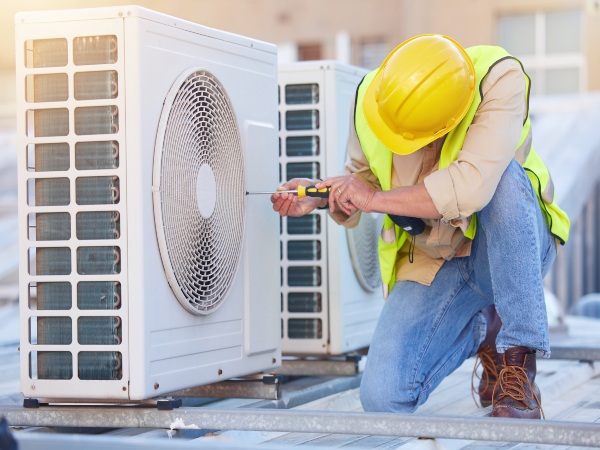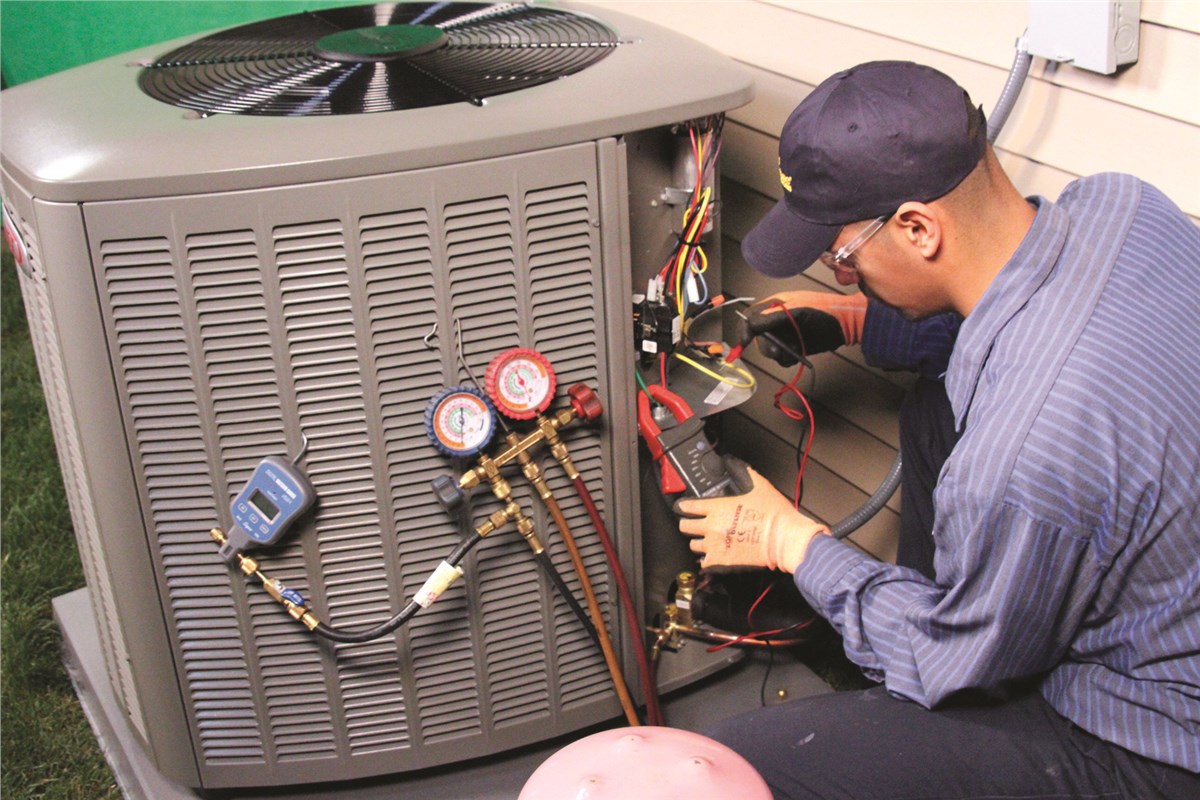Ac Dealing with: Repair The Cooling System To Bring Back Comfy Indoor Temperatures
Identifying Common Ac System Issues
Ever discovered yourself sweltering in the middle of a heatwave, just to realize your air conditioning unit isn't cooling as it should? It's frustrating, however more typical than you may believe. Many property owners deal with these concerns annual, from weird noises to uneven air flow. But why does this occur?
Top Concerns That Typically Pop Up
- Refrigerant Leaks: When the cooling agent leaks, the air conditioner struggles to chill the air, leaving you with hot blasts rather of rejuvenating breezes.
- Frozen Evaporator Coils: Ever observed ice buildup? It's an indication the system's working overtime or airflow is obstructed.
- Clogged Air Filters: Dust and debris can choke the system, triggering it to labor harder and potentially get too hot.
- Faulty Thermostat: In some cases, the culprit is as basic as a misreading thermostat, sending incorrect signals to your unit.
- Drain Issues: Water pooling around the system? Blocked drainage lines may be the sly bad guy here.
How to Acknowledge These Problems Early
Is your air conditioner making strange noises-- a grinding or rattling? That's a red flag. Or has your electric expense mysteriously escalated without a modification in use? Ineffectiveness typically conceals behind such ideas.
| Symptom | Possible Cause | Quick Repair Idea |
|---|---|---|
| Warm air blowing | Low refrigerant or compressor failure | Check refrigerant levels; call a professional for compressor issues |
| Unit will not turn on | Electrical problems or thermostat breakdown | Reset breaker; replace thermostat batteries |
| Water leak | Clogged drain line | Clear drain with a wet/dry vacuum |
Why Do These Issues Take place?
Think about your a/c as a delicate ecosystem. Interrupt one part, and the entire system stumbles. Often, it's neglect-- a forgotten filter change-- or external factors like power surges. What's clear is that disregarding early signs just turns minor glitches into major headaches.

Essential Tools for Air Conditioning Repair Work
Ever discovered yourself looking at a frozen evaporator coil or a persistent compressor that declines to hum back to life? You'll rapidly understand that having the right tools isn't just a convenience-- it's a requirement. Envision trying to determine refrigerant pressure with a damaged gauge or patching a leakage without a correct vacuum pump. The disappointment is genuine, but the solution depends on preparation.
Core Tools Every Service Technician Ought To Have
- Manifold Gauge Set: For accurate measurement of refrigerant pressures-- this is your diagnostic compass.
- Air pump: Getting rid of wetness and air from the system is vital; skipping this step threats contamination.
- Multimeter: Electrical power streams silently, but a multimeter speaks volumes about voltage, existing, and connection.
- Fin Comb: Bent fins on the condenser can choke airflow. This easy tool brings back airflow performance quickly.
- Refrigerant Leakage Detector: Pinpoint evasive leakages that may otherwise fly under the radar.
Pro Tips for Using Your Tools
- Never link gauges without first confirming the system is off. It avoids damage to your instruments and safeguards your fingers.
- When using the air pump, run it for a minimum of 30 minutes to ensure all moisture is extracted-- faster ways here cause system failure.
- Adjust your multimeter routinely; even slight mistakes can deceive troubleshooting efforts.
- Use the fin comb gently; extreme force can cause additional damage.
Air Conditioning Replacement Jacksonville FL
Air Conditioning Heating Repair Jacksonville FL
Air Conditioning Companies In Orida Jacksonville FL
Air Conditioning Repair In Jacksonville FL
What's often ignored is how these tools interplay. For example, a refrigerant leakage detector guides where to link your manifold gauges to assess pressure drops accurately. Have you ever observed how a basic tool swap can shave hours off a repair task? That's the type of effectiveness every service technician craves.
Step-by-Step Repair Work Instructions for Your A/c
Ever stood sweating while looking at a stubborn air conditioner unit that declines to cool? The buzzing hum that unexpectedly becomes silence can be maddening. How do you even begin to untangle this web of mechanical wrongdoing? Let's cut through the confusion with a clear, expert-guided process.
1. Diagnose the Core Problem
Before diving into repairs, ask: is the issue electrical, mechanical, or refrigerant-related? A fast test-- shut off the unit and inspect here the circuit breaker. Tripped breakers typically conceal the origin. Next, examine the thermostat settings. In some cases, the repair is as simple as recalibrating your thermostat or replacing its batteries.
2. Inspect the Air Filter and Coils
A clogged up filter or unclean coils can choke your ac system's performance. Take out the filter:
- If it looks filthy or dusty, swap it right away.
- Use a vacuum or soft brush to clean up the evaporator coils carefully.

Keep in mind, a neglected filter resembles attempting to breathe through a headscarf in a sauna-- inadequate and discouraging.
3. Analyze the Condensate Drain
Blocked drains pipes cause water accumulation, setting off sensing unit shutdowns. Use a stiff wire or a wet/dry vacuum to clear the drain line. This fast repair prevents leakages that can trigger larger headaches.
4. Evaluate the Capacitor and Fan Motor
These components often fail calmly. Using a multimeter, examine the capacitor for voltage consistency. If readings vary hugely or check out zero, replacement remains in order. For the fan motor, listen for grinding or irregular spinning-- signs of imminent failure.
Quick Reference Table: Common Symptoms and Fixes
| Sign | Probable Cause | Specialist Tip |
|---|---|---|
| Air conditioner not cooling | Dirty filter or low refrigerant | Tidy filter first; check for leakages with soapy water |
| System won't begin | Tripped breaker or faulty capacitor | Reset breaker; test capacitor with multimeter |
| Water dripping inside | Clogged condensate drain | Clear drain line to prevent overflow |
Now, you might wonder, "Is it actually worth trying to repair this myself?" Consider this: lots of repair work hinge on patience and the right tools rather than raw technical skill. A stable hand and a bit of troubleshooting can conserve hours and dollars. Similar to any complex machine, the essential lies in understanding its language-- the hums, clicks, and silences-- and responding accordingly.
Unlocking Longevity: Preventive Upkeep Tips for Air Conditioner Units
Ever noticed how a whispering breeze can develop into a stifling heating system when your a/c unit falters? That subtle hum is frequently the first indication of unseen stress. Overlooking these whispers can result in a complete breakdown just when you require cool relief the a lot of. What if you could capture these early whisperings before they intensify?
Start with the filter. It's simple to neglect, yet a stopped up filter chokes airflow, requiring your system to work overtime and spike energy intake. Changing or cleaning filters every 30 days during peak usage isn't simply excellent practice; it's a lifesaver for your air conditioner's efficiency.
Secret Preventive Steps:
- Inspect the coils: Dirt accumulation on evaporator and condenser coils lowers heat absorption and release. A mild brush or vacuum can restore their beautiful condition.
- Clear the condensate drain: Clogs here can cause water damage and boost indoor humidity. An easy wire or compressed air blast can keep this course clear.
- Inspect refrigerant levels: Too low, and your a/c pressures to cool; too expensive, and it runs the risk of compressor damage. Just accredited service technicians should deal with refrigerant modifications.
- Evaluate the thermostat's precision to avoid unneeded biking or discomfort.
Keep in mind the story of the old unit that froze strong one summer season? The offender was a tiny leak that slipped previous undetected. Little concerns typically imitate regular wear but substance quickly. Staying ahead with regular inspections and seasonal tune-ups can avoid these hidden disturbances.
| Maintenance Task | Frequency | Impact |
|---|---|---|
| Filter Replacement | Every thirty days | Improves air flow and decreases strain |
| Coil Cleansing | Annually | Boosts heat exchange effectiveness |
| Drain Cleaning | Quarterly | Avoids water damage and mold growth |
| Refrigerant Examine | Each year | Ensures optimal cooling performance |
Isn't it curious how the smallest tweaks-- like tightening up loose electrical connections or lubricating moving parts-- can spin your air conditioner back to peak type? These aren't just repairs; they're investments in comfort. A well-kept system doesn't just cool; it whispers cool calmness, even in the most blistering heat.
Air Conditioner Repair Work Services in Jacksonville, FL
Jacksonville, FL, is a vibrant city known for its extensive park system, beautiful beaches, and busy cultural scene. As the most populous city in Florida, it uses a diverse variety of outside activities including fishing, boating, and exploring the Timucuan Ecological and Historic Preserve. The city's warm climate makes air conditioning a vital part of everyday comfort for citizens and businesses alike.
For those requiring to fix air conditioning system, Bold City Heating and Air provides professional consultation and suggestions. They are ready to assist ensure your cooling system runs efficiently through Jacksonville's hot seasons. Connect to them for a complimentary assessment to address your air conditioning repair work needs.